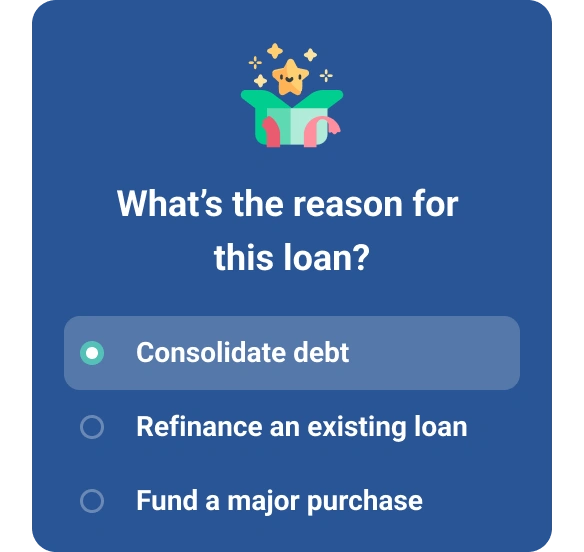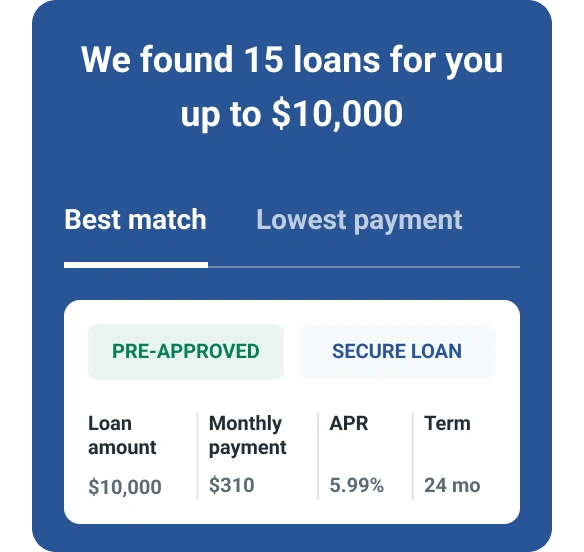What Does Subprime Mean?
Quick Answer
A subprime borrower is someone with a low credit score or a poor credit history. Subprime loans and credit cards are credit products that were created for subprime borrowers. These credit products tend to have less favorable rates, terms and fees.

Subprime can refer to a borrower who has a low credit score, as well as loans and credit cards intended for borrowers with poor credit histories. If you're a subprime borrower, you could have more difficulty borrowing money with favorable rates and terms. You may still have options, however, and you can take steps to improve your credit to become a "prime" borrower.
What Is a Subprime Borrower?
A subprime borrower is someone who doesn't have good enough credit to qualify for a creditor's best rates and terms.
As a rule of thumb, a subprime borrower might be someone with a VantageScore® credit score of 300 to 600 or a FICO® ScoreΘ of 300 to 669. However, creditors can also use different ranges when grouping borrowers.
Additionally, a credit score isn't the only factor lenders consider. For example, you might be considered a subprime borrower if you:
- Recently missed payments on credit accounts
- Had a recent charge-off, repossession or foreclosure
- Filed for bankruptcy in the last several years
- Have a high debt-to-income ratio
- Are new to credit and haven't established a good (or any) score
According to VantageScore, 18.7% of people had a subprime score in July 2025, an increase from 18.1% two years earlier. Experian data from March 2025 found that 29.1% of people had a subprime FICO® Score. The difference may be due, in part, to the larger subprime credit score range with FICO® Scores.
Learn more: Why Are My Credit Scores Different?
Prime vs. Subprime Borrowers
Lenders tend to distinguish prime and subprime borrowers based on their credit scores and credit histories. Some lenders also use more nuanced groups and terms to separate borrowers into different categories, such as deep subprime, subprime, near prime, prime and super prime.
Here's an example of how lenders might group borrowers based on their credit score, and the common descriptions that often accompany these industry terms.
| Score Range | Industry Terms | Common Terms |
|---|---|---|
| 781 - 850 | Super prime | Excellent |
| 661 - 780 | Prime | Good |
| 601 - 660 | Near prime | Fair |
| 501 - 600 | Subprime | Poor |
| 300 - 500 | Deep subprime | Very poor |
Source: Experian, based on VantageScore 4.0 credit scores
Some creditors specialize in lending to particular segments of borrowers, including subprime borrowers. Others offer loans or credit cards to borrowers across the credit spectrum, but they vary the products and offers based on the applicant's credit.
Getting preapproved for a loan or credit card could be a good way to see which creditors might approve you without hurting your credit scores.
What Is Subprime Credit?
Subprime credit may refer to the loans and credit products that financial institutions offer to subprime borrowers. These often have higher interest rates, more fees and lower borrowing limits than credit accounts for prime borrowers.
While subprime and prime are industry terms, you might see subprime credit accounts advertised as accounts for people with no credit or poor credit, or for people who are rebuilding their credit. These can include:
Subprime Credit Cards
Subprime credit cards include secured credit cards, which require you to send the issuer a refundable security deposit to open your account. But there are also unsecured credit cards for bad credit that are also described as subprime cards. These cards may have annual or monthly fees and tend to lack generous cardholder benefits or rewards.
Subprime Mortgages
Subprime mortgages are home loans that may have higher closing costs, down payment requirements and interest rates than other home lenders. Lenders require this because they're taking on more risk when they lend to borrowers with lower credit scores.
Subprime borrowers also may be more likely to be offered adjustable-rate mortgages, which can be riskier than fixed-rate loans because their interest rate could rise in the future.
Subprime Auto Loans
While you may be able to get an auto loan with bad credit, subprime auto lenders may require a higher down payment and charge a relatively high interest rate. You may also receive a longer repayment term, which can lower your monthly payment but leads to paying more interest overall.
Learn more: How Do I Get a Subprime Loan?
How to Improve a Subprime Credit Score
If your credit score is in the subprime range, know that you don't have to stay there forever. Whether you're new to credit or have a poor credit score because of negative marks in your credit history, you can take several steps to improve your score.
- Make all your debt payments on time. Missing a payment by 30 days can add a late payment to your credit history, and late payments could negatively impact your credit score for up to seven years.
- Pay down credit card balances or make early payments. High balances can lead to a high credit utilization ratio, which is an important factor in your score. Paying down balances or making early payments might increase your score quickly.
- Bring past-due accounts current and pay off collections. Catching up on late payments and paying off collection accounts could also lead to a quick increase in some credit scores.
- Add more positive information to your credit report. Making loan and credit card payments on time can help you add positive information to your credit file. For example, you could get a secured credit card if you don't have a credit account. Using features like Experian Boost®ø to add phone, utility and popular streaming service payments to your Experian credit report can also lift your score.
- Don't apply for too many new accounts at once. Each credit application can lead to a new hard inquiry, which may hurt your score even if the creditor declines your application. However, you can comparison shop for certain types of loans without doing additional damage to your score. Hard inquiries appear in your credit report and can affect your score even if the application is not approved.
The exact amount of time it takes to move from subprime to prime will depend on your unique credit file and where you're starting from with your credit. However, consistently taking steps to improve your credit could help increase all your credit scores.
Learn more: Ways to Build Credit if You Have No Credit History
Monitor Your Progress While Building Your Credit
Having subprime credit can make qualifying for new loans more difficult and expensive. You can check your credit report and score for free from Experian to see where you currently stand. You'll also get insights into what's helping or hurting your credit score the most, personalized tips for improving your credit and free credit monitoring to track your progress.
Need a loan?
Whether you're shopping for a car or facing a last-minute expense, compare loan offers matched to your credit profile.
Start now for freeAbout the author
Louis DeNicola is freelance personal finance and credit writer who works with Fortune 500 financial services firms, FinTech startups, and non-profits to teach people about money and credit. His clients include BlueVine, Discover, LendingTree, Money Management International, U.S News and Wirecutter.
Read more from Louis

